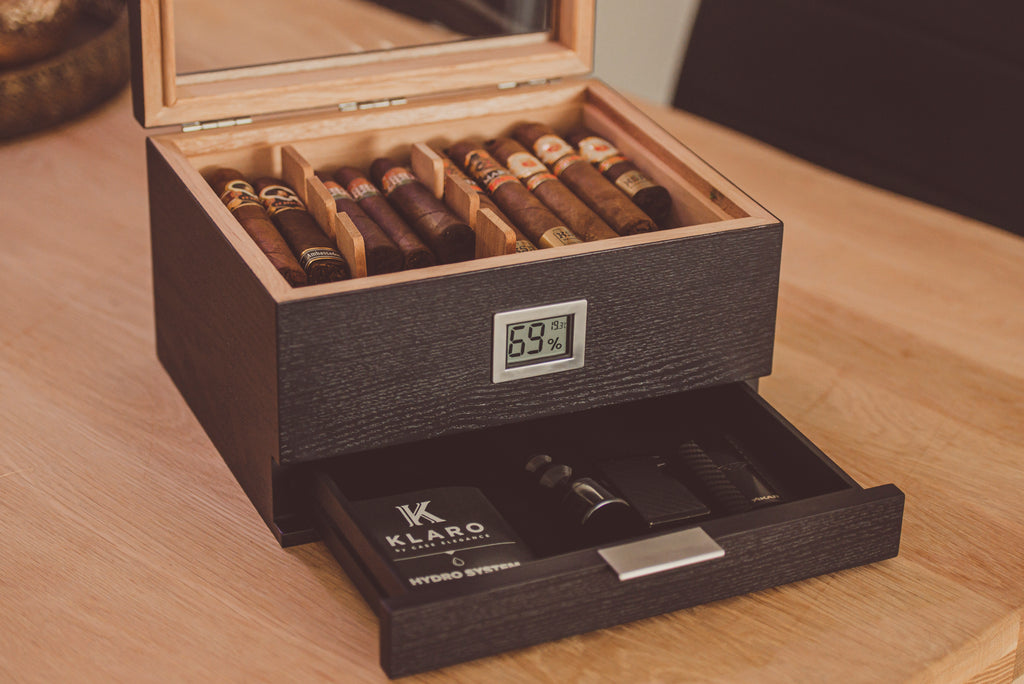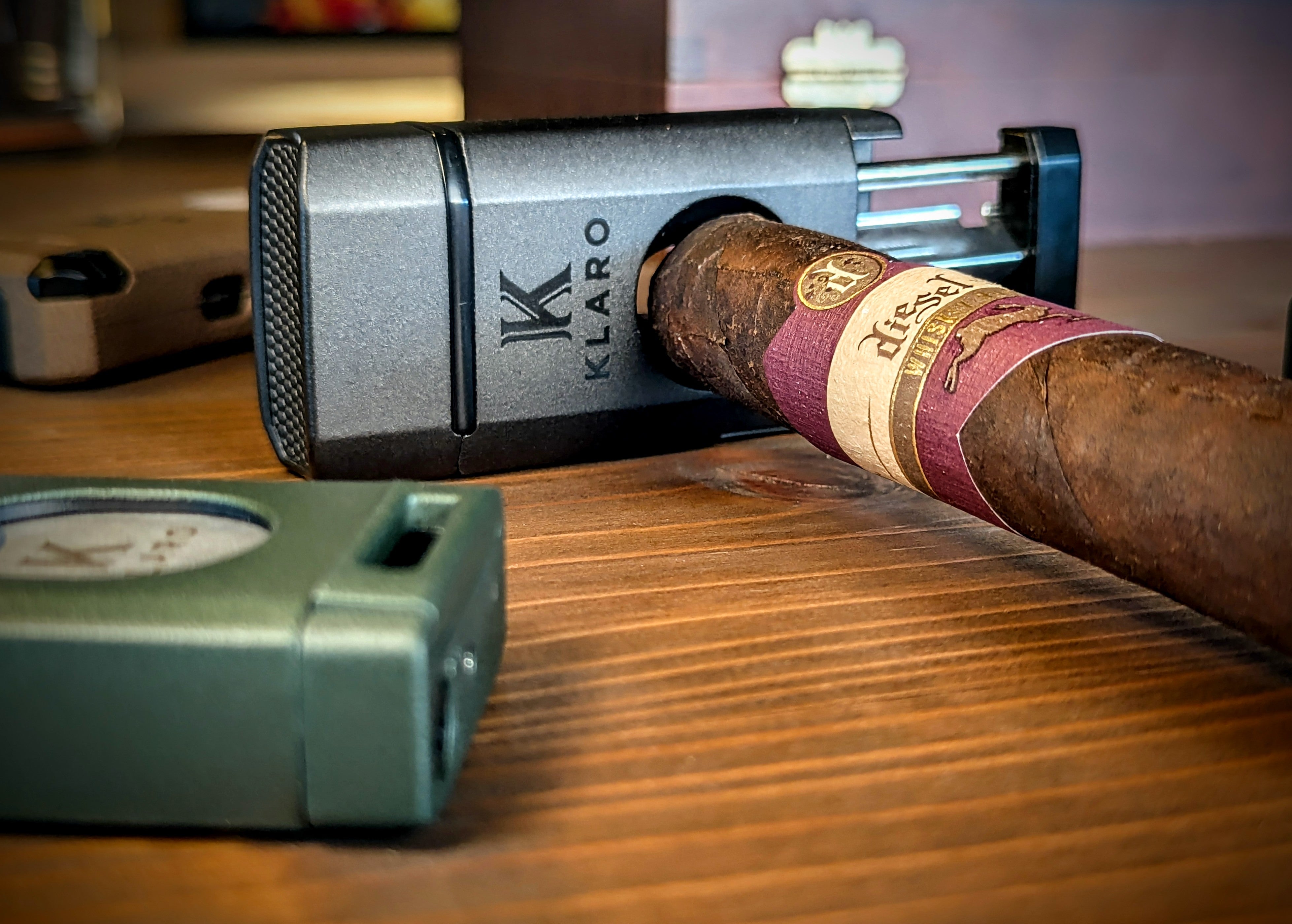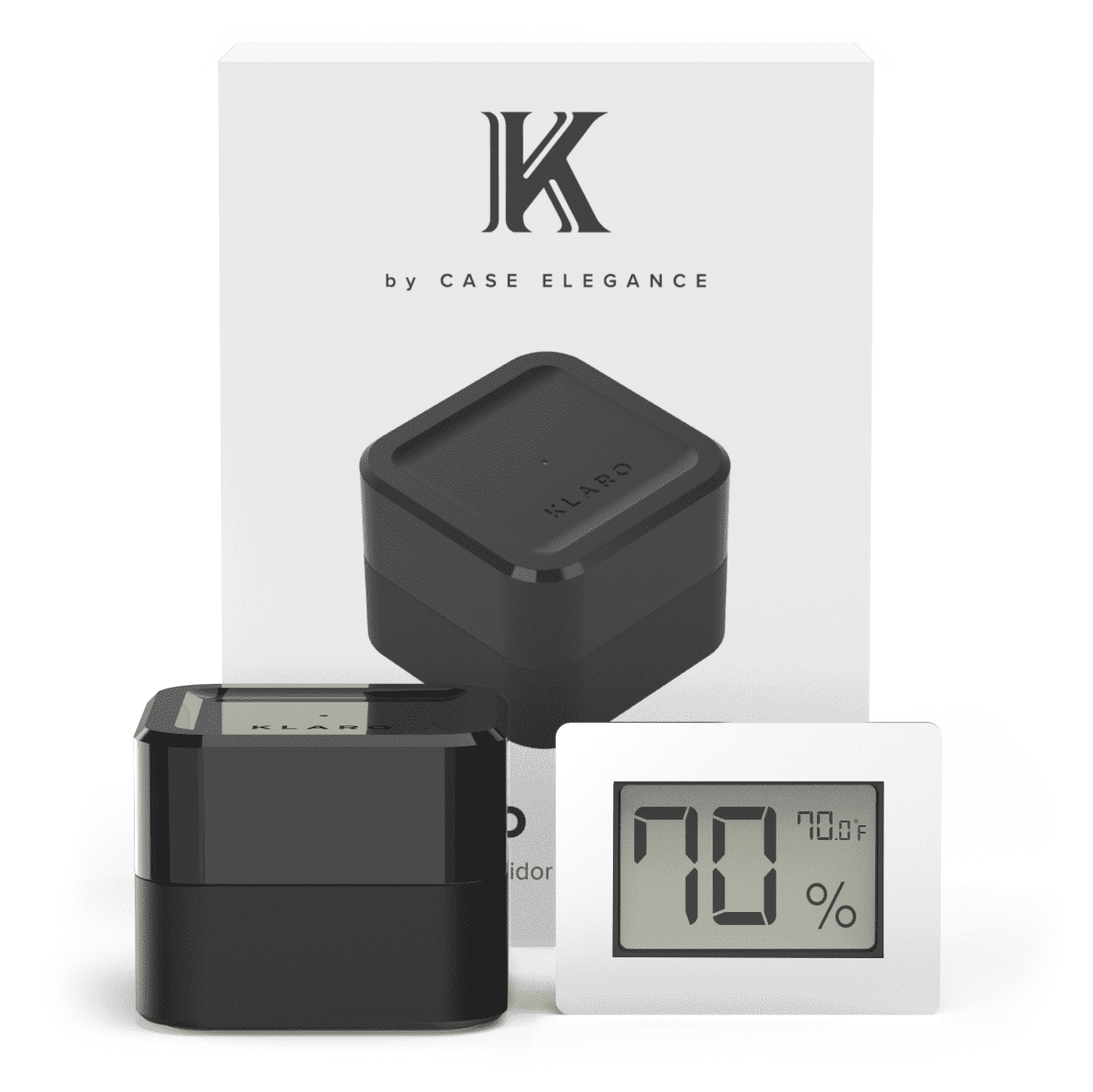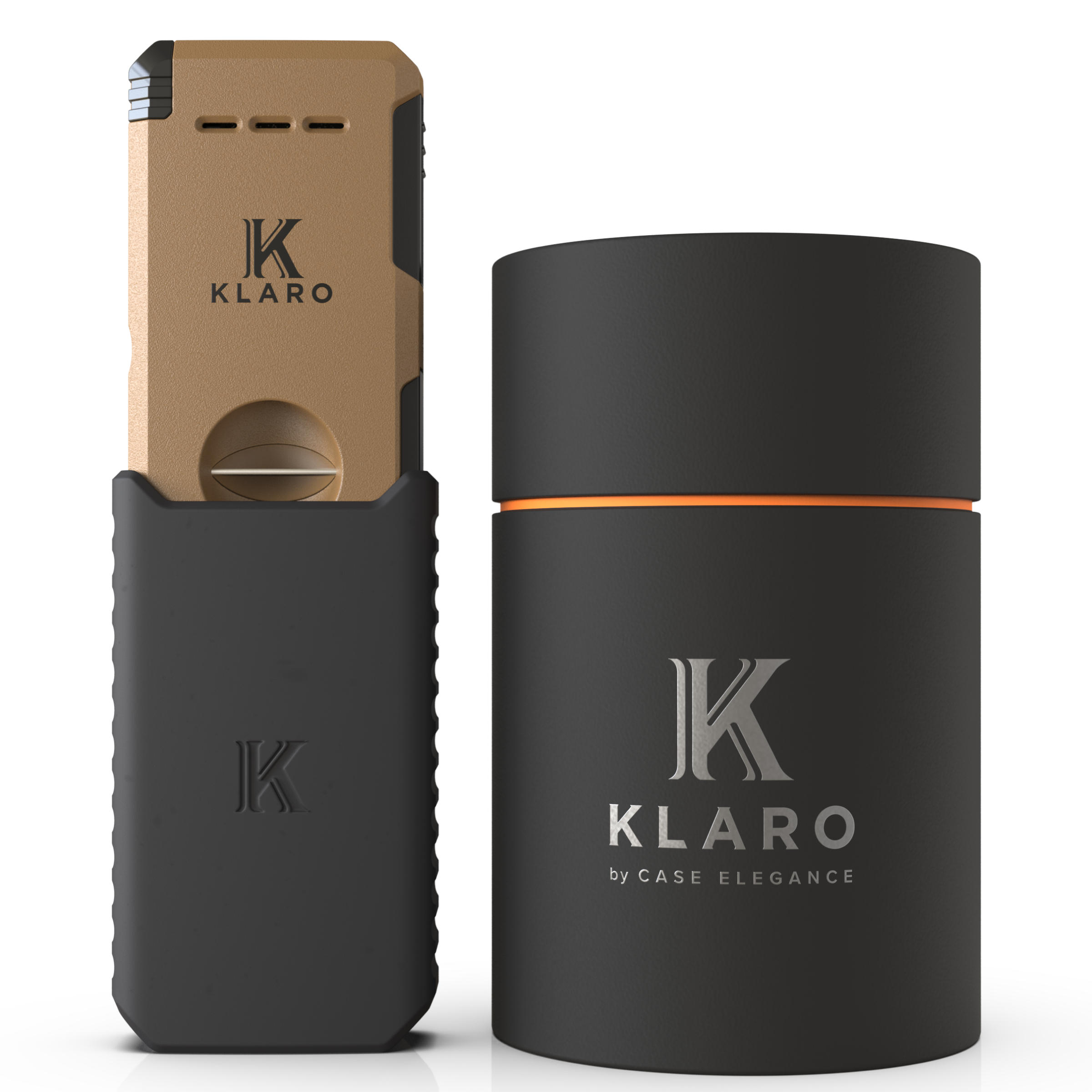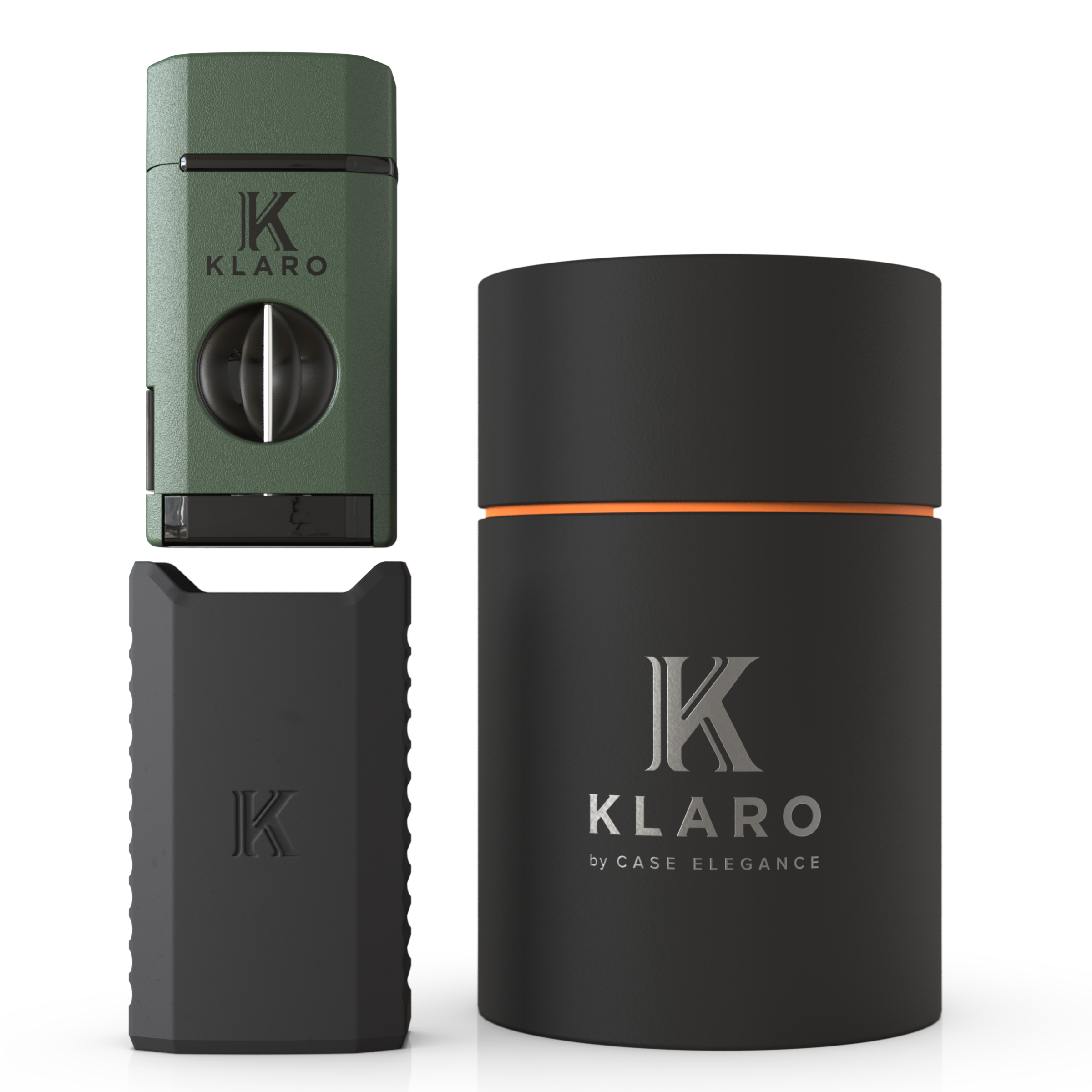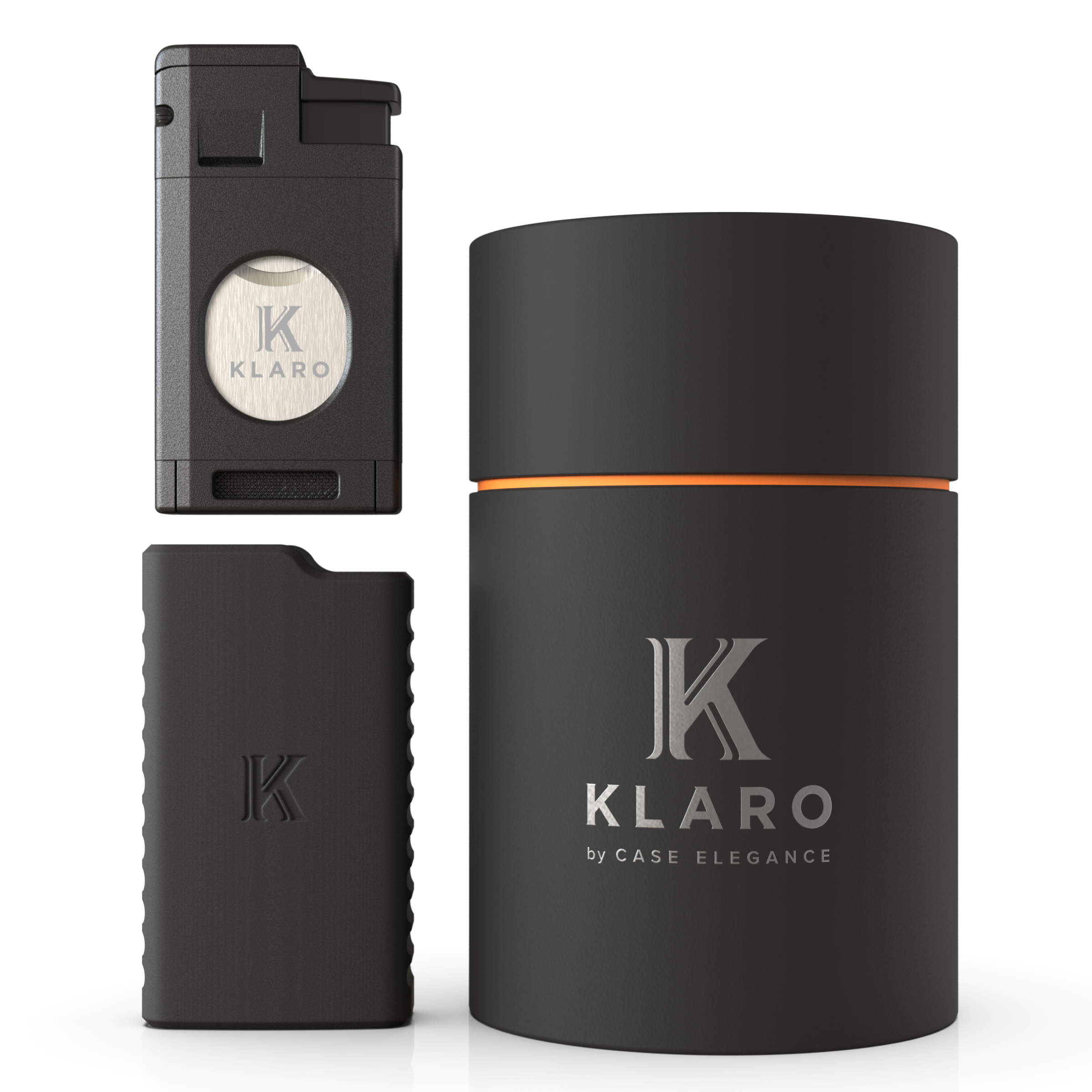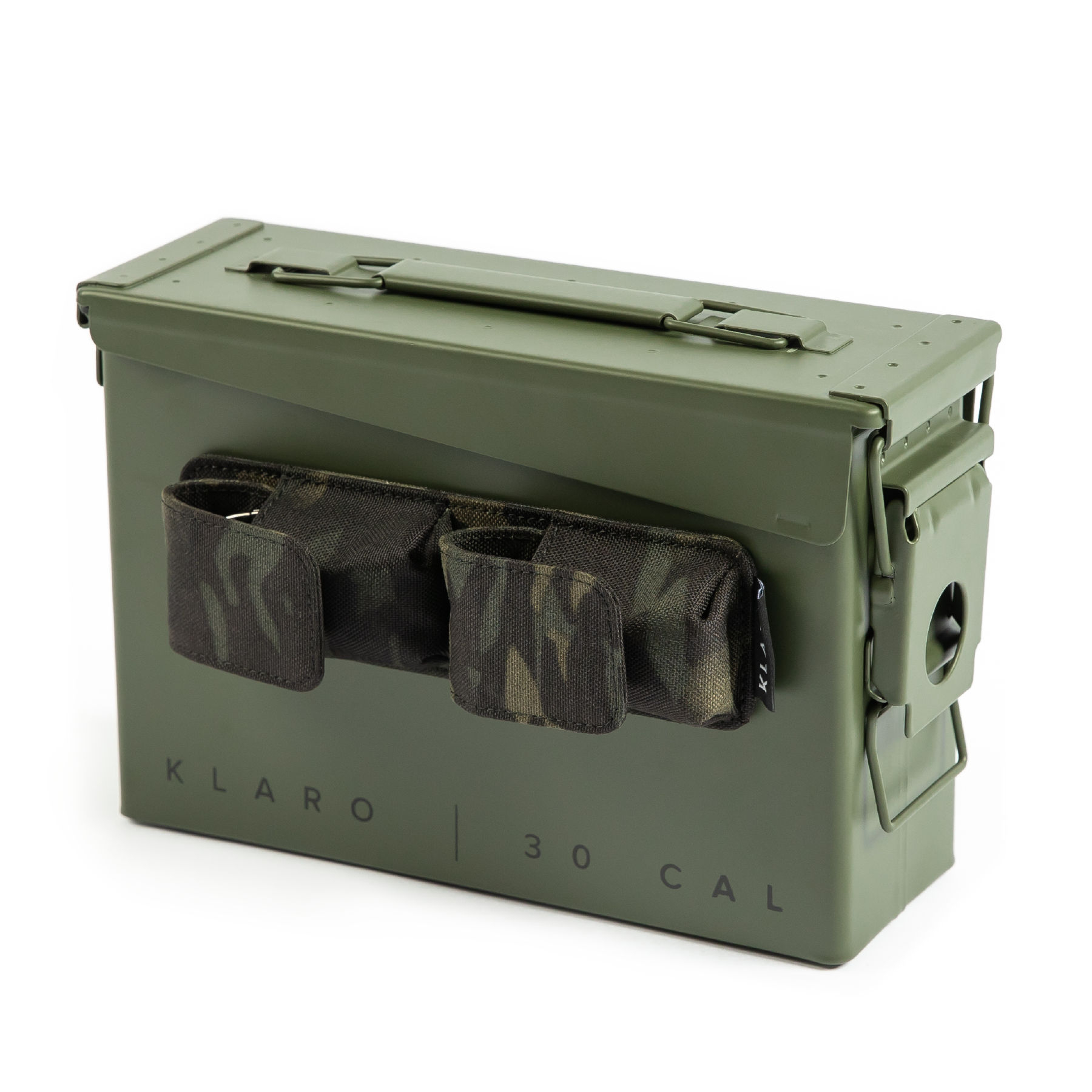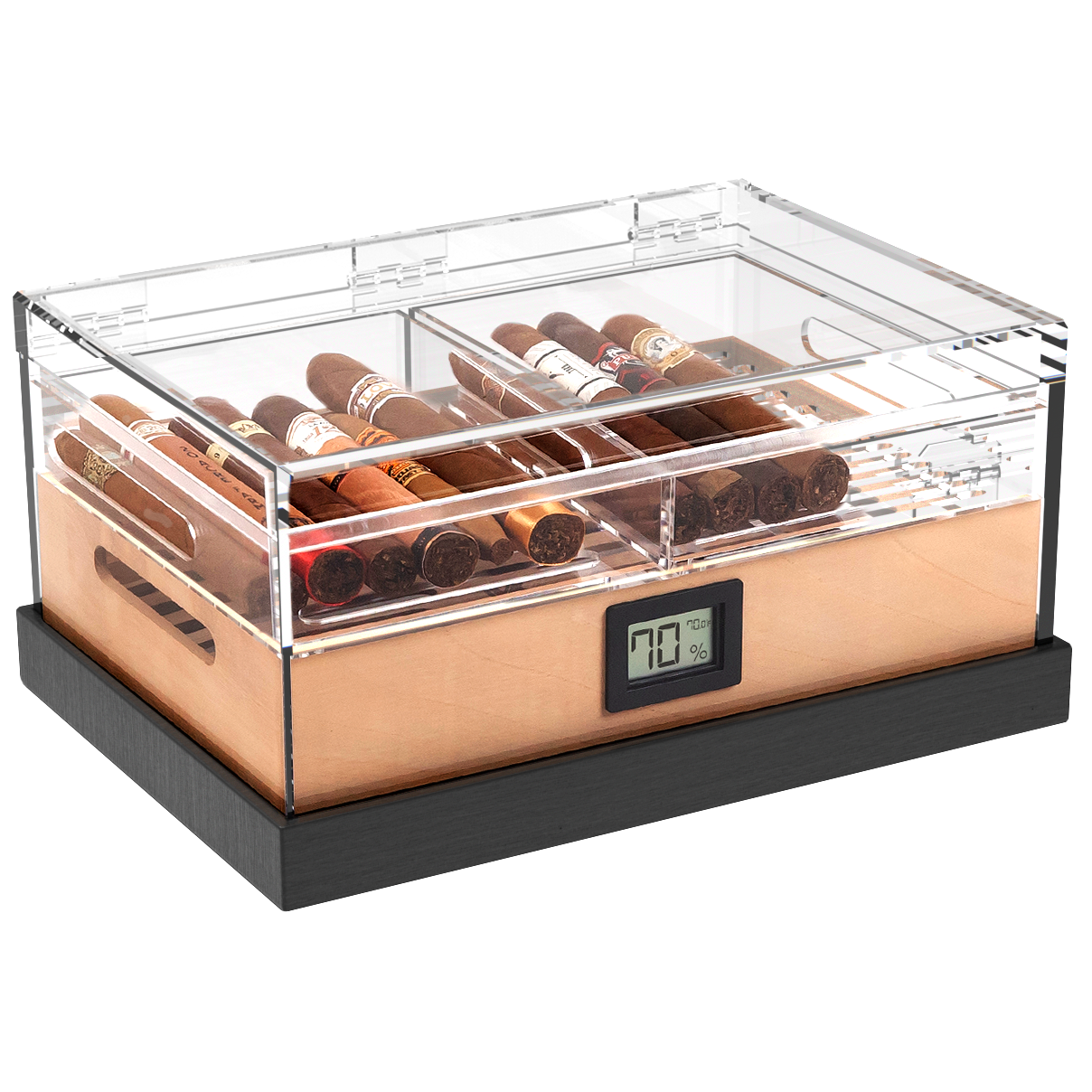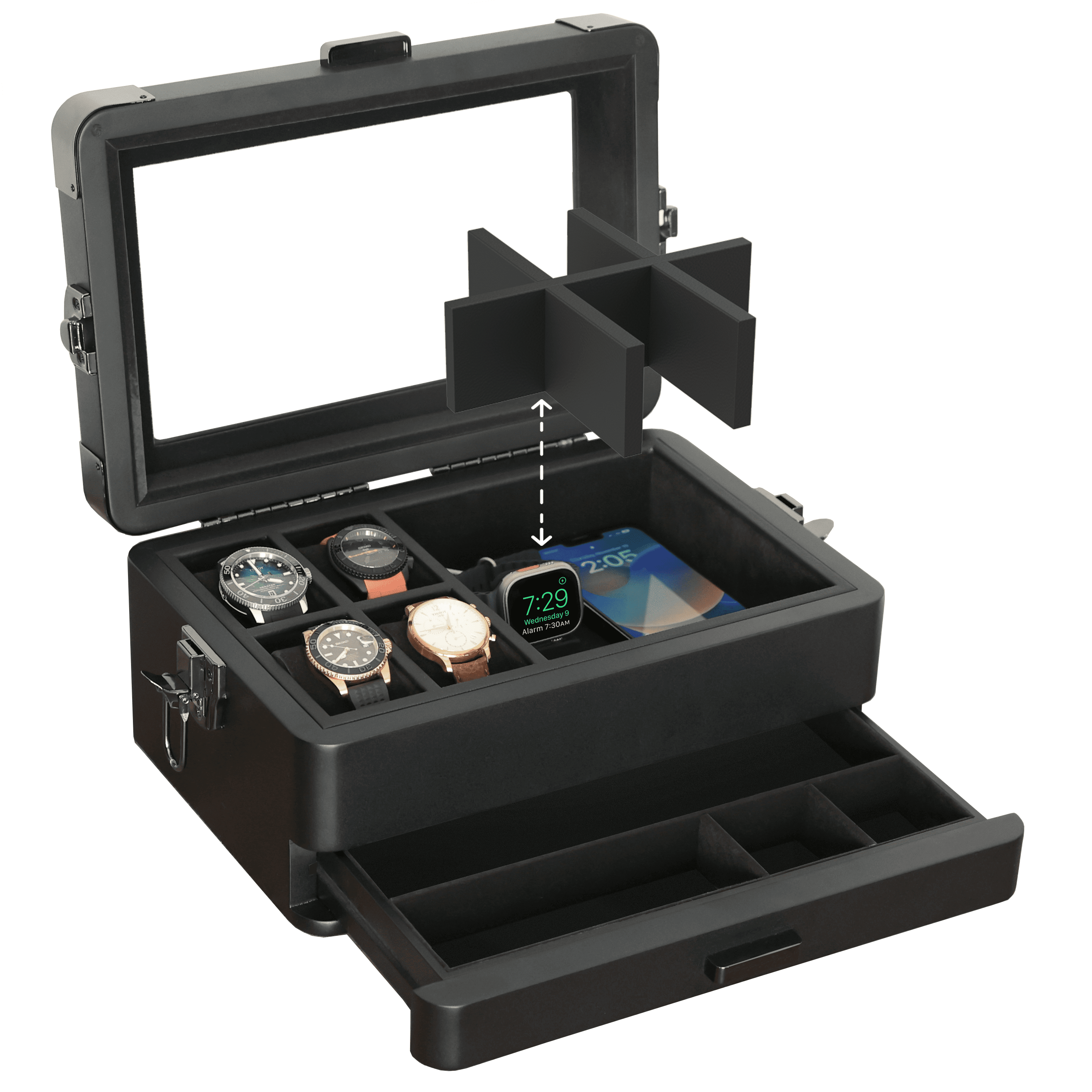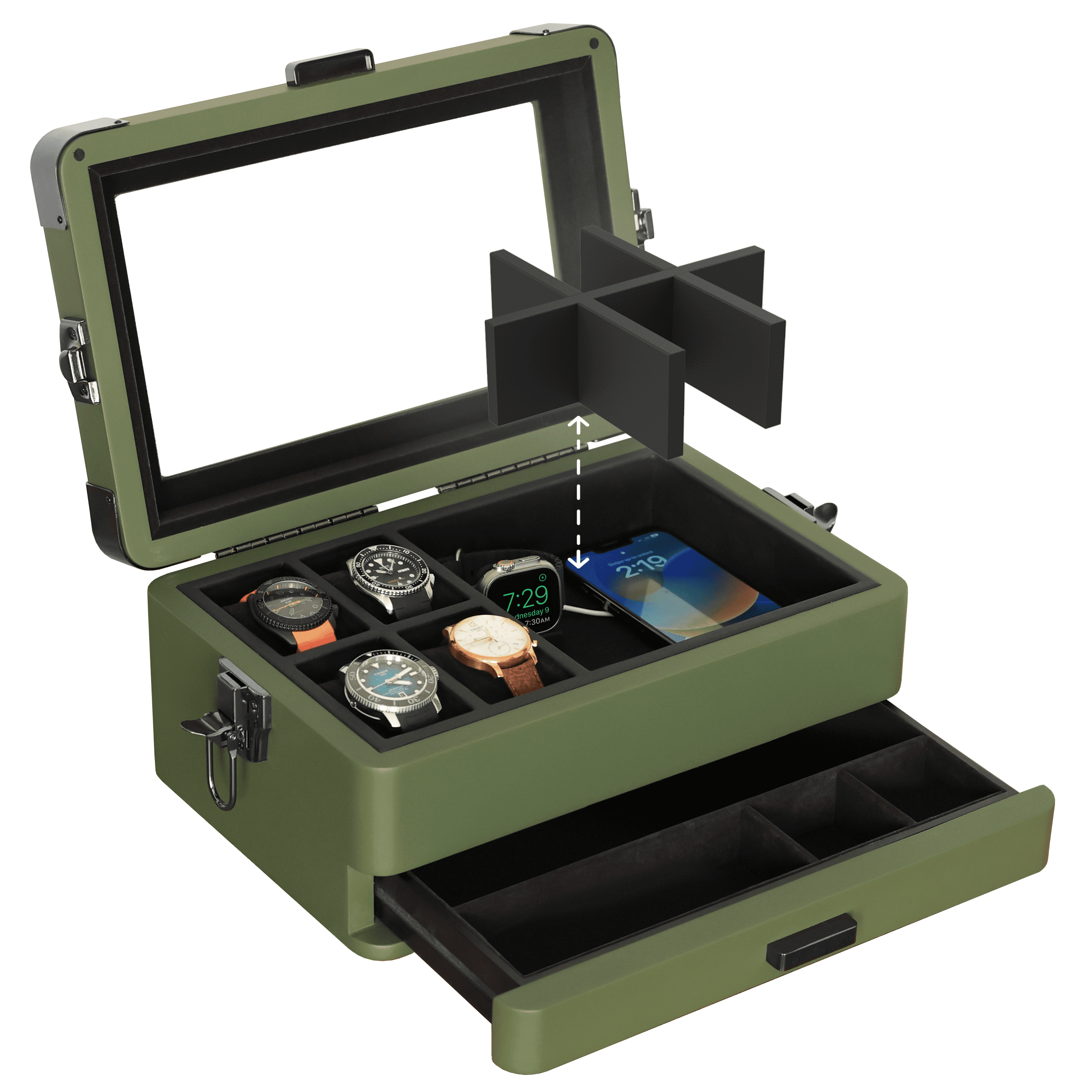
The relationship between cigars and their humidor is symbiotic, and humidity is their shared resource. As you decide which humidor is right to house your collection of cigars, size can play a role in just how well your humidor protects and extends the life of your cigars based on how the humidity is distributed and shared in a larger or smaller space.
The purpose of a humidor is to create a perfectly controlled environment, and you’ll have to work with different sized humidors to guarantee reliable, environmental control. This comes down to two factors. First, the humidor itself: size, type, and humidification system. The bigger the humidor, the more humidity distribution you’ll have to worry about. The second factor is how many cigars you store in relation to capacity. Overfill your humidor, for example, and you’ll notice fairly quickly the difficulty in maintaining your optimum humidity levels.
But will a larger humidor actually struggle to adequately protect a few cigars? Can my supply of cigars fluctuate without affecting humidor performance? How do I know if a large humidor is performing properly? Can I underfill or overfill any sized humidor? What size humidor do I really need?
Here we’ll explore how size affects humidor performance so you get a more comprehensive understanding of what humidor size you need beyond the overgeneralized advice of “always buy bigger.”
Airflow and humidor size
You’ve likely heard that, when buying a humidor, always go bigger than you think you need. But is that always true? When it comes to airflow distribution, it might not make sense to house an average of ten cigars in a 300-capacity humidor. You wouldn’t use a chef’s knife for the work of a paring knife.
The reason for this has less to do with how many cigars you store and more to do with airflow distribution, atmosphere control, and how your humidor regulates humidity.
Let’s think of humidor size in terms of type: small humidor, humidor box, electric humidor, humidor cabinet, walk-in humidor. This list goes from smallest to largest, and each of these vary in capacity, humidification systems, and–in some cases–atmospheric control. The larger the humidor, the more work it has to do to regulate humidification.
Here we’ll look at some examples of different sized humidors and how they function to regulate humidity and airflow.
Small humidors
By no means does every smoker need a 300+ capacity humidor. For those who smoke on special occasions or try two to three stogies a month with a cigar subscription, a small humidor will suit their needs just fine–and with less attention to maintenance.
Just look at how smaller humidors regulate humidity. They often rely on humidor packs, sponge, gels, or crystals as their source of humidity. The moisture releases naturally into the air and, with a high-quality small humidor, they keep your cigars protected in a stable, close environment. Here, there’s less airflow and space to regulate, so a simple source of humidification is adequate for humidification as long as you are refilling or replacing the humidification source regularly. That all changes as there’s more space to regulate.
Humidor electric
An electric humidor, often referred to as a frigador, is a temperature- and humidity-controlled unit that houses somewhere around 250-1000 cigars. The benefit of these models is that they control their internal environment independently: their electric humidification system is connected to the hygrometer, and temperature is controlled with thermoelectric cooling technology. When humidity or temperature fluctuates beyond a required level, it kicks on the humidifcation system or cooling and heating element.
These units are contained, well-sealed, and are small enough so that internal fans can distribute humidity proportionally, even as most eclectic humidors use a shelving system might otherwise risk isolating some cigars. With electric humidors, the independent control reduces the risk of overfilling or underfilling the cabinet, though at a hefty price point. But you won’t worry as much whether there’s two cigars in your unit or 200.
Humidor cigar cabinet (non-electric)
When you need a storage solution for hundreds or sometimes thousands of cigars, humidor cabinets are a great front-facing, aesthetic option. They are often used to store bulk cigars, often as-seen in cigar shops, but many private cigar collectors also keep cigar cabinets at home. Unlike electric humidors, these don’t always have a built-in humidification system, and instead rely on installed humidification systems.
They typically use a shelving setup that requires vertical ventilation. And while they rely on similar components as humidor boxes to create a cigar-friendly environment–like Spanish cedar and proper seals–they require further hydration and air circulation to distribute the proper humidification throughout that much more space. Most cigar cabinets rely on an electric humidifier and a fan system to control humidity and airflow, especially when drawers separate the spaces where cigars are housed.
Humidor cabinets are also often designed with a large front-facing door, and opening and closing the cabinet exposes your cigars to the outside air, meaning the electric humidifier needs to properly chosen to quickly restore the humidor to its ideal range of 65 to 72 percent humidity. Searching for electric humidifiers, you’ll see them rated for how many cubic feet they can regulate, and those using cigar cabinets sometimes require multiple humidifiers to maintain close control in variable scenarios.
Tobacco Nerd Note: Humidity control is important for more than just cigars–and the stakes are high. Coors Field in Denver, Colorado is home of the MLB’s Colorado Rockies, and due to its altitude, the cork in the baseballs used at Coors Field are inherently less humidified and can travel further when struck with a bat–an unfair advantage to the hitting team. Since 2002, the MLB has employed humidors to regulate baseballs at Coors Field to a 50% humidity level, even though the outside humidity is often closer to 30%. The same goes in other stadiums where humidity levels might affect the baseball’s bounciness.
Cigar selections and humidor size
The size of your humidor matters beyond how well it maintains humidity levels, especially if you’re a smoker who prefers to store a wide range of cigar types. When you overfill a humidor with strong-flavored cigars, pretty soon all your cigars will smoke with hints of whatever is overpowering the group.
From mild to medium to full-bodied to flavored cigars, the more different types you store, the bigger a humidor you’ll want. That’s because cigars, when stored closely together, can affect one another’s taste. When stacking cigars, their oils can transfer. And the same humidity that keeps all your cigars protected can also transfer flavors from one cigar to the next. If storing a wide range of cigar types, invest in a humidor that gives you ample room to separate different flavor profiles. This rule is especially important when purposing your humidor for aging cigars.
What is my humidor’s actual capacity?
Cigars come in a range of lengths and gauges, and your humidor’s capacity will depend on the size of cigars you store–an often overlooked factor. Typically, when humidor manufacturers and sellers list their capacity, they do so with a Toro-sized cigar in mind–approximately 6” in length at a 52 ring gauge. But when storing varying sized cigars, the capacity of your humidor changes.
This is why, with every Klaro humidor by Case Elegance, you’ll see a “Cigar Count” tab in the product description that provides cigar types, gauges, and capacities for each humidor. And it matters: a humidor that stores eighteen Toro 60G cigars can hold almost four times as many Petite Coronas.
How do I know if my size of humidor is performing?
Humidors vary in quality, they act differently in variable climates, and they outperform and underperform when overfilled and underfilled–regardless of size. Of course, some quality elements can boost your humidors ability to regulate humidity–Spanish cedar interior, a reliable hydration system. But to really know how well your humidor does in regulating humidity when it’s full or when it’s empty, you have to get to know your hygrometer.
Regardless of size, your hygrometer is your most honest friend that won’t pull punches. Ensure your hygrometer is calibrated frequently, but then pay attention to how it performs when you vary the amount of cigars you hold. And if you own a medium to large humidor with a permanent hygrometer fixture, invest in a miniature hygrometer you can place inside and measure from different locations to see how well humidity is being distributed.


